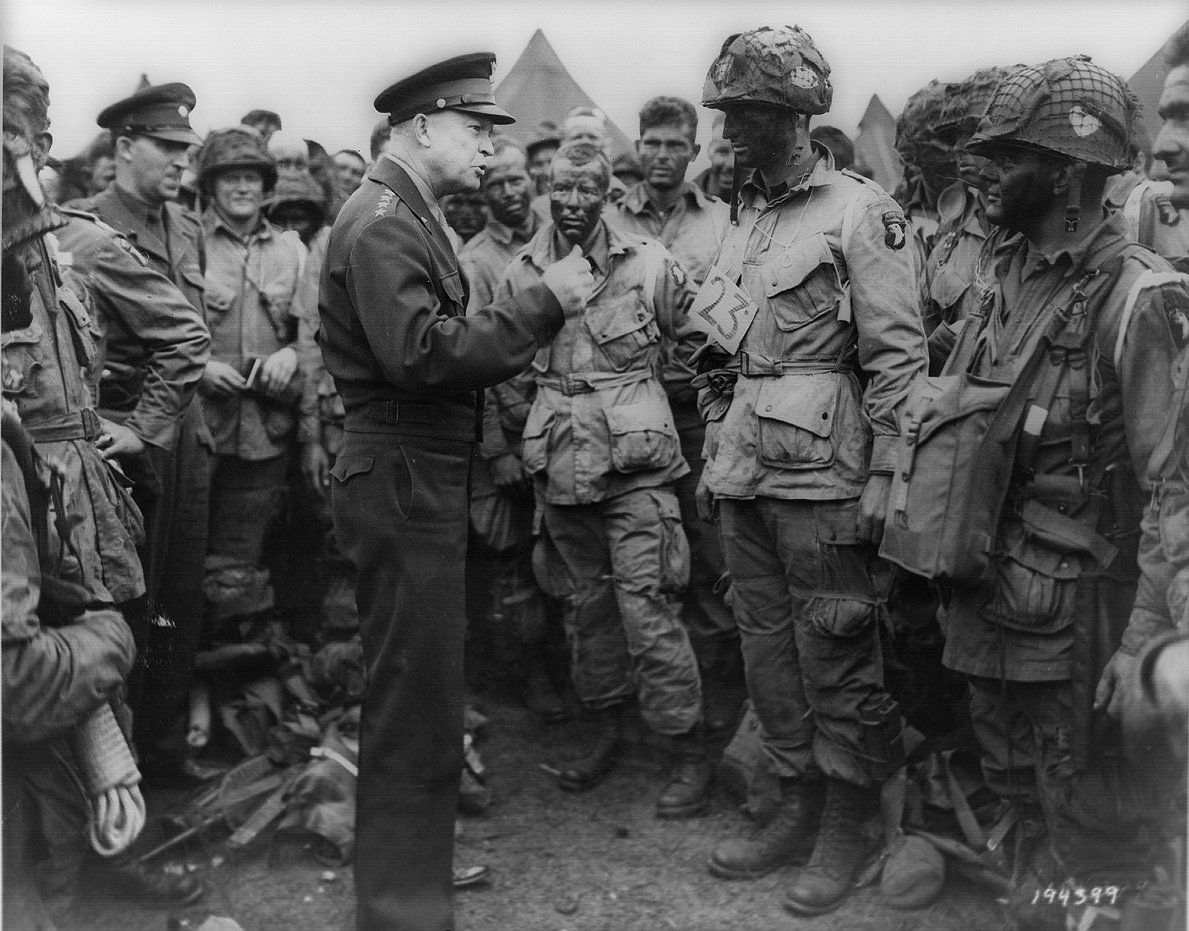Soldiers, sailors and airmen of the Allied Expeditionary Force. You are about to embark upon the Great Crusade toward which we have striven for these many months. The eyes of the world are upon you.
Gen. Dwight D. Eisenhower, June 2, 1944
That Normandy as a hallowed place and D-Day as a seminal event live on in the memories of so many is due in part because so many of those eyes—of mothers, fathers, sons, brothers, sisters and wives—knew what lay ahead.
By June 6th, 1944, the U.S. had been in the war for 30 months, Britain for 57. Allied landings on hostile shores had already taken place in North Africa, in Sicily and the long, bloody slog up the Italian boot was into its fourth month. From the Pacific, the public had seen the newsreels from Guadalcanal and Tarawa.
But Europe was different. Central Europe was the fierce, hardened core of German military might squatting behind Hitler’s vaunted Atlantic Wall. As Allied troops in England waited tensely for the step-off command, so too did their kin half a world away await the news of what all knew had to be done. What would be done. In his classic, The Longest Day, author Cornelius Ryan wrote about how the home front woke up to the beginning of the end of the war in Europe. It’s worth remembering.
“For most of the United States, the report came in the middle of the night; on the East Coast it was 3:33 a.m., on the West Coast 12:33 a.m. Most people were asleep, but among the first to hear of D-Day were the thousands working on the swing shifts, the men and women who had toiled to produce most of the guns, tanks, ships and planes that were being used in the assault.
Everywhere in the great pulsing war plants work stopped for a moment of solemn meditation. In a Brooklyn shipyard, under the harsh glare of arc lamps, hundreds of men and women knelt down on the decks of partially finished Liberty ships to say the Lord’s Prayer.
Across the nation, in sleeping towns and villages, lights flashed on. Quiet streets suddenly filled with sound as radios were turned up. People woke their neighbors to tell them the news, and so many phoned friends and relatives that telephone switchboards were jammed. In Coffeyville, Kansas, men and women in their night attire knelt on porches and prayed.
On a train between Washington and New York, a clergyman was asked to hold an impromptu service. In Marietta, Georgia, people thronged into churches at 4:00 a.m. The Liberty Bell was rung in Philadelphia, and throughout historic Virginia, the home of the 29th Division, church bells tolled in the night just as they had during the Revolution. In little Bedford, Virginia (population 3,800), the news had a special significance. Nearly everyone had a son, brother, sweetheart or husband in the 29th. In Bedford, they did not know it yet, but all of their men landed on Omaha Beach. Out of forty-six Bedford men in the 116th regiment, only twenty three would come home again.
At her home on Long Island, Mrs. Theodore Roosevelt had slept fitfully. About 3:00 a.m. she awoke and could not get back to sleep. Automatically, she turned on the radio—just in time to catch the official D-Day announcement. She knew that it was characteristic of her husband to be somewhere in the thick of the fighting. She did not know that she was probably the only woman in the nation to have a husband on Utah Beach and a son—twenty-five-year-old Captain Quentin Roosevelt of the 1st Division—on Omaha Beach. Sitting up in bed, she closed her eyes and said an old and familiar family prayer: “O Lord, support us this day … until the shadows lengthen and the evening falls.”



































